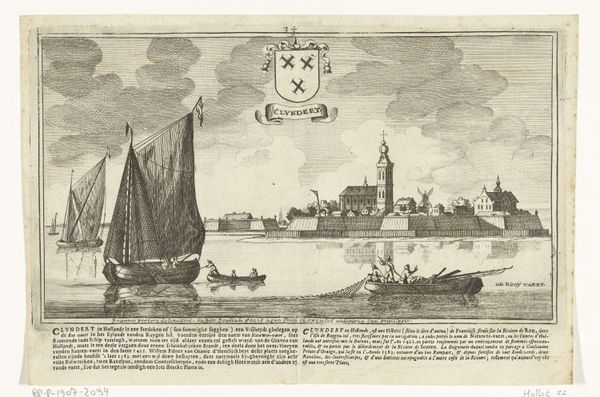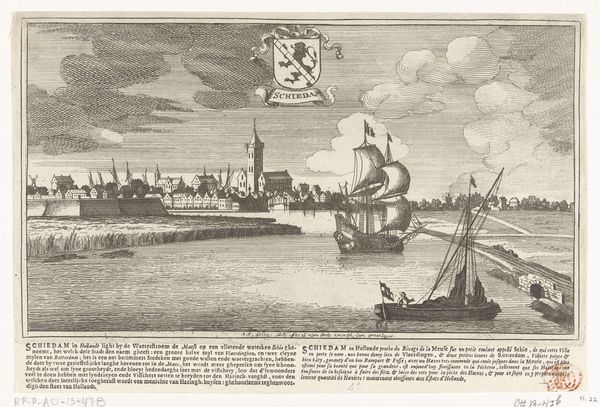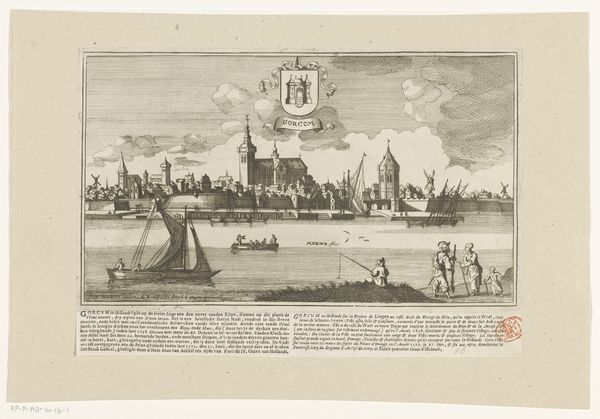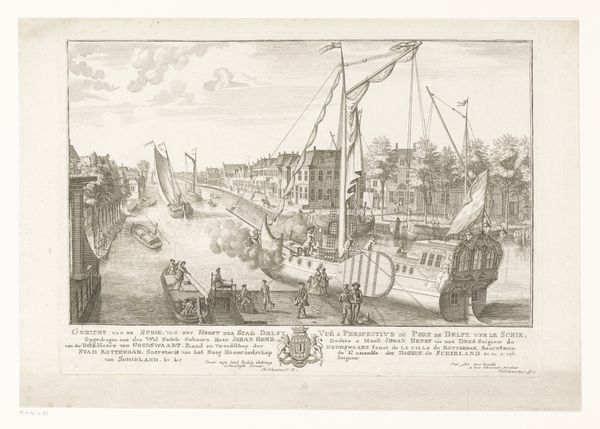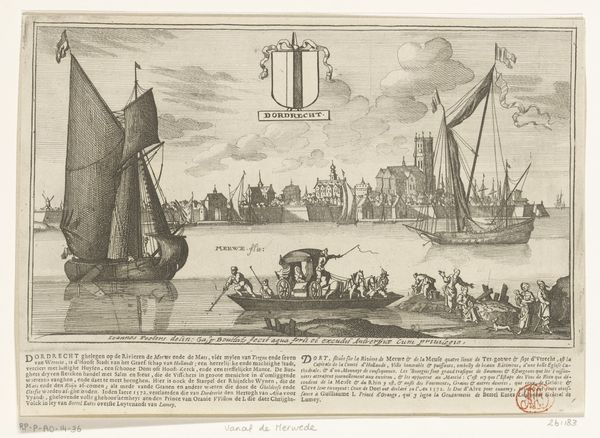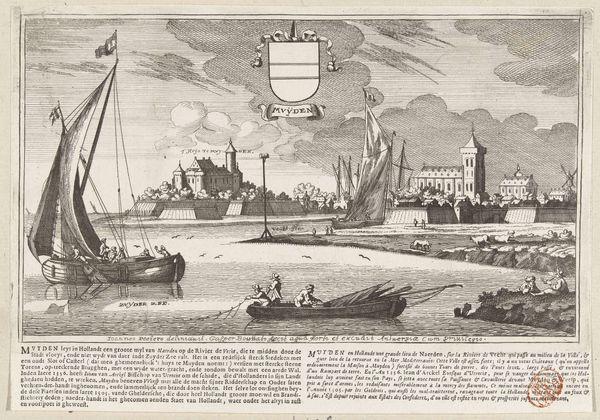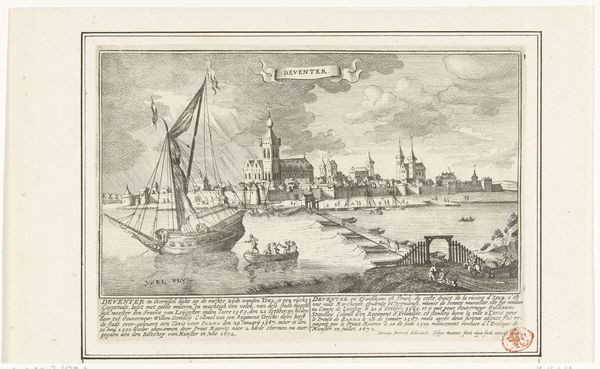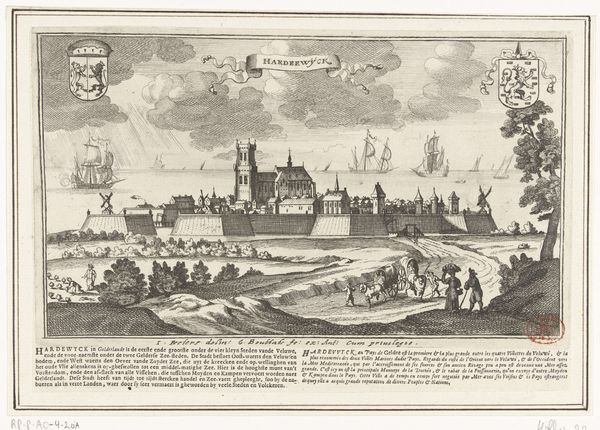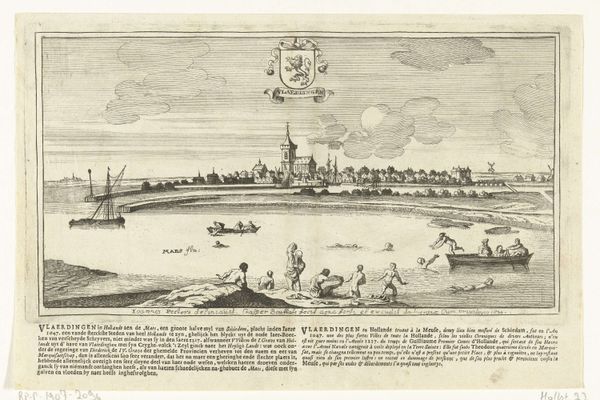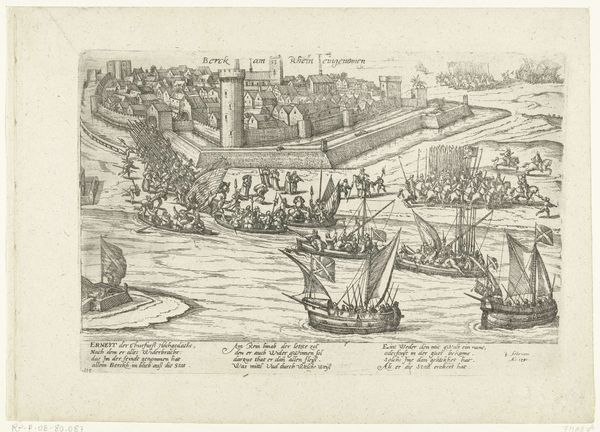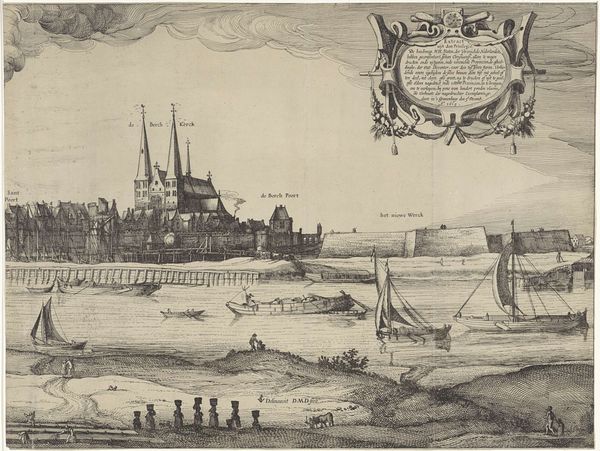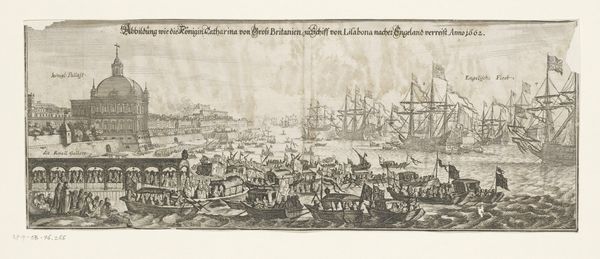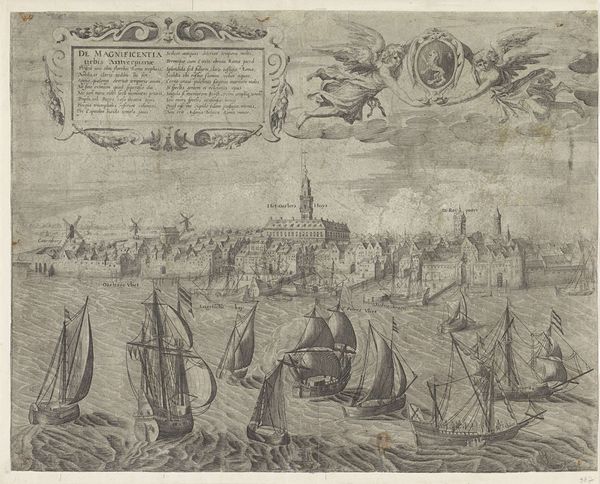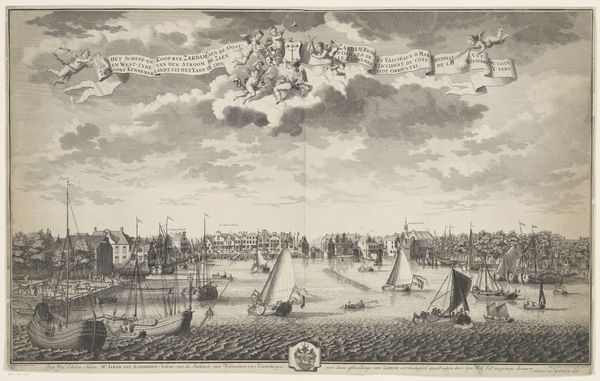
print, engraving
#
dutch-golden-age
# print
#
traditional media
#
landscape
#
cityscape
#
engraving
#
realism
Dimensions: height 178 mm, width 245 mm
Copyright: Rijks Museum: Open Domain
Gaspar Bouttats made this print of the harbor of Brielle, now in the Rijksmuseum, in the late 17th century. It’s an etching, which means the image was incised into a metal plate, likely copper, with a sharp needle, and then printed. The crisp lines of the etching beautifully capture the bustling maritime activity. You can see the texture of the paper and the slight variations in ink density, all part of the printmaking process. The quality of the lines speaks to the engraver's skill, their ability to translate observation into a precise, repeatable image. Prints like this one were essentially reproducible media, a way to circulate views of cities and landscapes widely. They could be bound into books or sold as individual sheets. This speaks to an increasingly commercial world, where images became commodities, available for purchase and consumption. Consider, too, the labor involved – the artist's eye, the engraver's hand, the printer’s expertise, not to mention the merchants who would have traded in these images. This print is not just a view of a harbor; it’s a product of a complex network of making, exchange, and consumption.
Comments
No comments
Be the first to comment and join the conversation on the ultimate creative platform.
